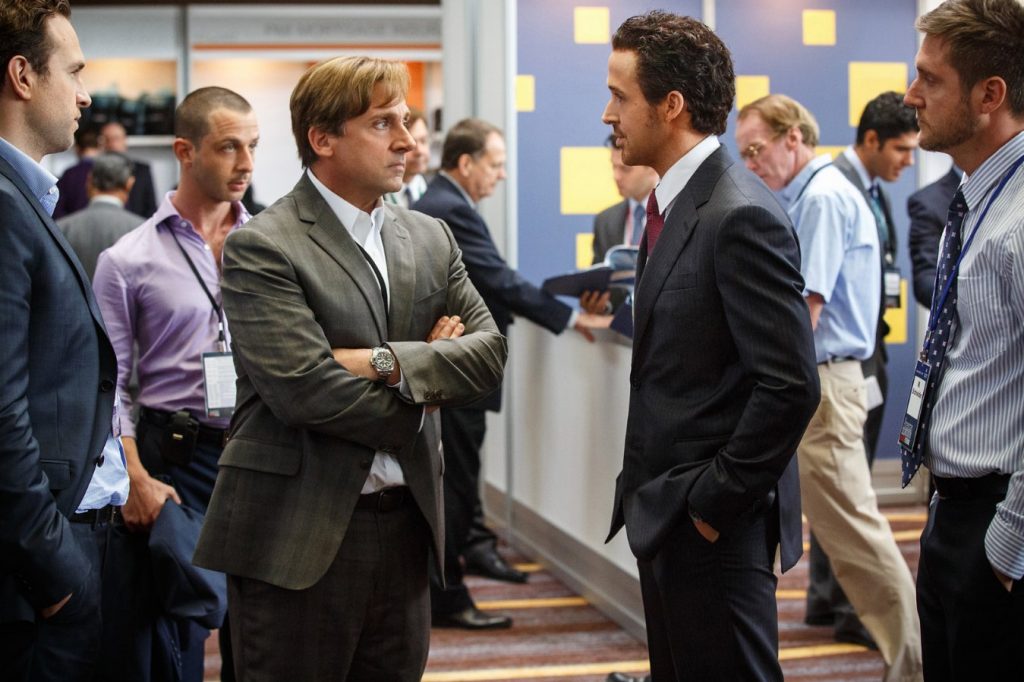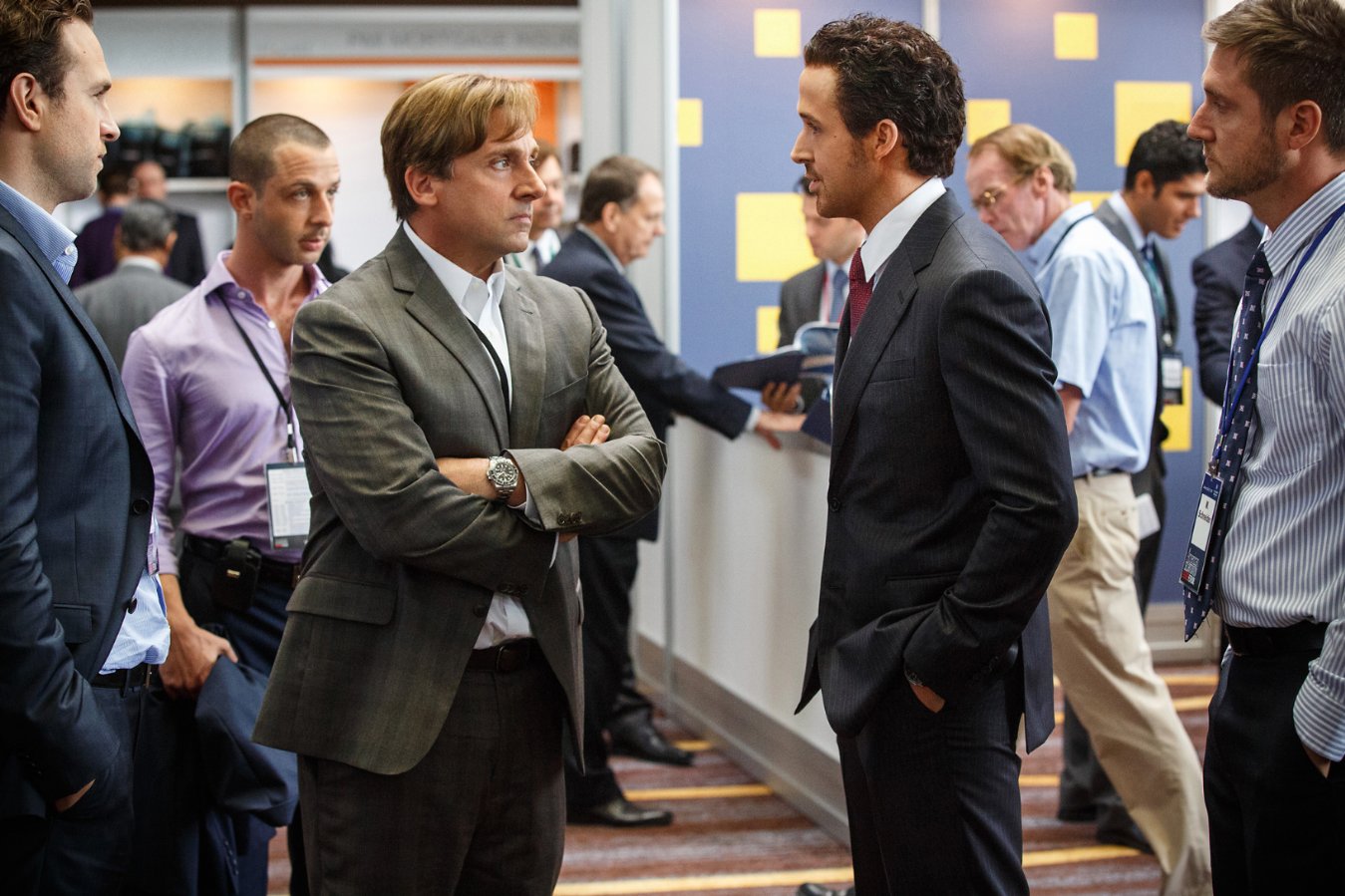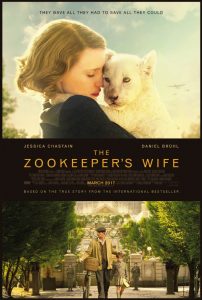Leave it to Adam McKay, director of the Anchorman movies and Step Brothers, to find humor in the economic collapse of 2008. That is not to say that he has produced a laughfest with The Big Short, but his ability to find spirited and relatable characters amongst the greed and absurdity of Wall Street’s finest hour makes for a tongue-in-cheek triumph, which proves to be one of the most uniquely enjoyable films of the past several years. The Big Short, based on Michael Lewis’ 2010 book, follows several men as they recognize and attempt to capitalize on the housing bubble collapse that helped spark the global financial crisis. While each of the men has profitable intentions, their pursuits’ greatest accomplishment is the exposure of Wall Street’s ignorance and neglect in the months and years leading up to 2008’s crash. The film has dynamic energy and characters, thanks in large part to a crackling screenplay, written by McKay and Charles Randolph.

IMDb
Leading the way are Christian Bale and Steve Carell, both of whom earned Golden Globe nominations for their performances (Bale has also added an Oscar nomination). Bale’s Michael Burry is eccentric and antisocial, and watching him leave others feeling uncomfortable and inferior makes for great entertainment. Carell plays Mark Baum, and his performance is a mix of the actor’s best qualities. He plays Baum with no filter and an inability to accept others’ stupidity, ramping up the nasality of his voice effectively. Both actors do great work with their characters, even if one could point to a scene or two as purely awards-chasing. Either one may have found even greater success this awards season had they not shared the film with so many talented and capable actors. Brad Pitt and Ryan Gosling provide entertaining, if half-hearted, supporting performances, and one can not help but laugh at Gosling yelling gleefully “I’m jacked to the tits!”
The star-studded cast could easily have succumbed to overacting if not for the presence of McKay and his comedic mind. With his most notable awards before this year coming in the form of Emmy nominations for things like Drunk History and Saturday Night Live, some may question how McKay found his way into the Oscar conversation. The answer lies in his ability to mock and scorn people with inflated egos, an ability evident even in films like Step Brothers and The Other Guys. Right from the start, McKay makes it clear that this is a film for the audience, and several times throughout the film he has stars speak directly to the camera to explain how exactly the financial crisis came about. McKay plants himself squarely on the side of the audience, or at least on the side of individuals who suffered as a result of the crisis, and he tugs at our emotions by emphasizing the selfishness and stupidity of a wide variety of characters. He simplifies the financial concepts that drive the story, allowing the story to zoom forward without plodding through the complexities of the bookkeeping.
The film possesses a strange but compelling dynamic, for the heroes of the story do not remedy the oncoming economic catastrophe. It is easy to root for them to make their (hundreds of) millions and to root against the avaricious banking professionals they encounter, but when the profits finally come, it is at the expense of countless Americans. All the excitement that comprises the film’s first hour leaves the audience salivating for piles of money and numerous chances for “I told you so’s.” As the film moves along, however, McKay undercuts the positive energy with images of emptying offices and angered ex-employees, stark reminders that these were actual events that affected real people, some of whom could be sitting in the theater. Even as Baum and Burry and the rest cash out for unfathomable amounts of money, there is no solace in their triumph over the now-suffering bankers and prognosticators, for the pain extends far beyond the bounds of New York’s financial district.





